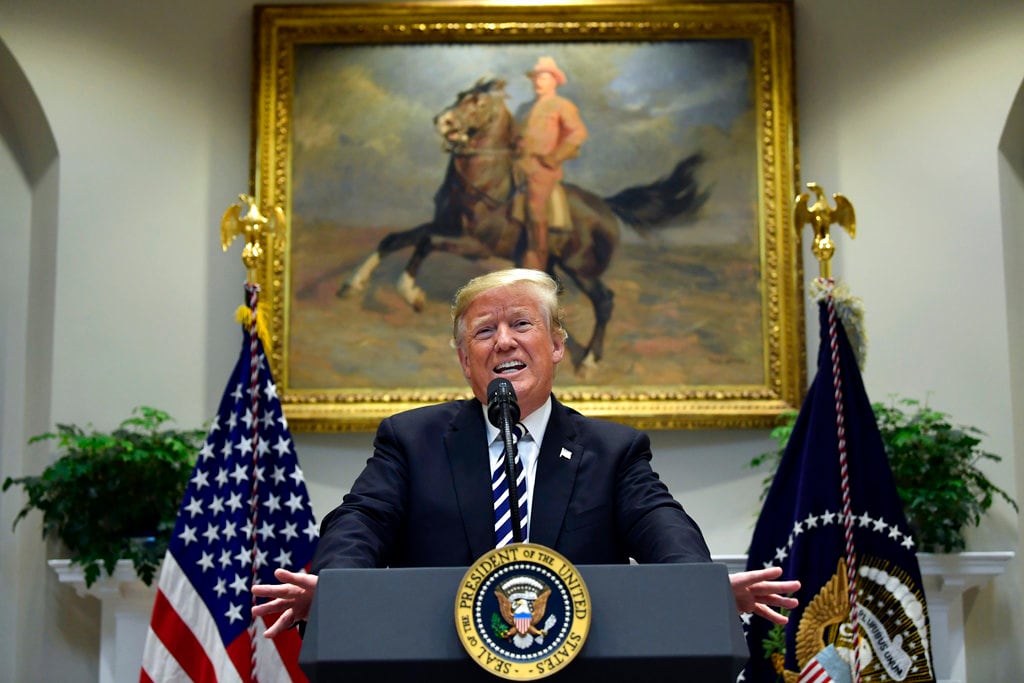Fourteen years after the United States accused the Sudanese government of genocide in Darfur, the Trump administration is entering a new chapter of engagement with Khartoum and offering the possibility of removing the African nation from the state sponsor of terror list.
The State Department agreed to a second phase of rapprochement with Sudan Nov. 6, laying out six priorities that if filled by Khartoum would remove one of the last remaining barriers between two nations that have been at odds for nearly three decades.
The terrorism designation was first placed on Sudan by the Clinton administration in 1993.
While no specific timeline was placed for the removal of the terrorism designation, a State Department official told reporters that a decision would be made sometime between six months and four years.
For the Sudanese government, the designation would signify a normalization of relations with the West after decades of being an outcast.
If the terrorism designation is dropped, Sudan will ask for financial support from the International Monetary Fund and look for foreign direct investment, Foreign Minister Al-Dirdiri Mohamed Ahmed told reporters. The terrorism designation is a “stigma” for Sudan, Ahmed said, arguing that the U.S. unfairly placed the label on his country.
Under the second round of normalization the U.S. said that it would drop the terrorism designation if Sudan ceased internal hostilities, expanded humanitarian access, improved human rights, addressed terrorism related claims, expanded counter terrorism cooperation and worked to curtail North Korean activity.
In particular, White House officials under the Trump administration have been eager to expand relations with the Sudanese government in order to work on counter-terrorism issues, U.S. officials have told the Military Times. The officials said that most of the American counter-terrorism and special-forces operations are aimed at countering the Islamic State and monitoring events in Libya.
Sudan also hosts one of the largest CIA sites in the region, according to former U.S. officials.
The rapprochement with Sudan is bipartisan and long expected.
The process began under the Obama administration. In 2010, the U.S. government similarly offered to lift the terrorism designation if Khartoum agreed to a series of steps, according to internal White House and State Department documents obtained by the Military Times. The “USG package,” as one document is titled, required that Sudan “refrain from provocative military activities” as it was preparing to grant southern Sudan independence, among other steps. The requirements were not met.
Still, the Obama administration formally began a process of normalization in January 2017. However, some are skeptical that Khartoum has changed.
“Sudan’s human rights record remains extremely poor, with instances of extrajudicial killings, disappearances, arbitrary arrest and detention, forced population movements, rape, slavery and severely restricted freedom of assembly with violent suppression of protests,” read an internal 2017 State Department memo, which was obtained by the ACLU in a lawsuit.
In 2004, the Bush administration accused Khartoum of orchestrating a genocide in Darfur. Sudanese President Omar al-Bashir is still wanted by the International Criminal Court.
In Darfur and other contested regions “there is still conflict despite the absence of indiscriminate wholesale bombing and burning of villages that characterized earlier stages in both conflicts,” Jehanne Henry, a Sudan expert at Human Rights Watch told the Military Times.
Henry noted that under the Trump administration’s second round of engagement with Sudan, “human rights and religious freedoms are lumped into one. This is ill-advised, especially in the absence of clear benchmarks for success because religious freedoms stands as only one of many problem areas in Sudan’s human rights record.”
But the Sudanese foreign minister argued otherwise.
“Darfur’s chapter has already been closed,” Ahmed said, claiming that the accusations of genocide have been “disproven.”
International journalists have been mostly barred by the Sudanese government from legally entering Darfur for nearly a decade, however Ahmed made a personal commitment to grant the Military Times a visa to the region.
The journalist “is a good student,” Ahmed muttered in Arabic to the Sudanese Ambassador, Mohammed Atta. He then switched back to English and assured the journalists of his pledge.
“You are most welcome.”
Justin Lynch is the Associate Editor at Fifth Domain. He has written for the New Yorker, the Associated Press, Foreign Policy, the Atlantic, and others. Follow him on Twitter @just1nlynch.




